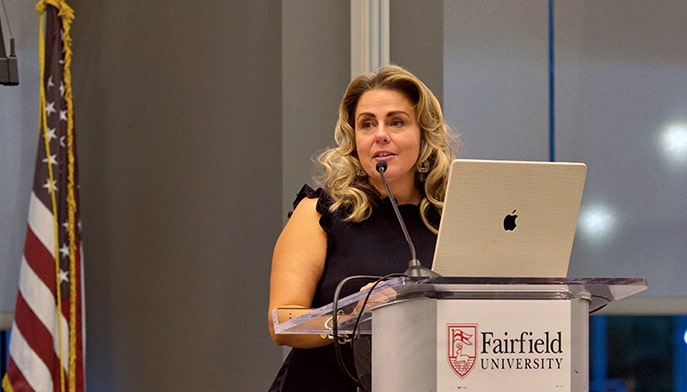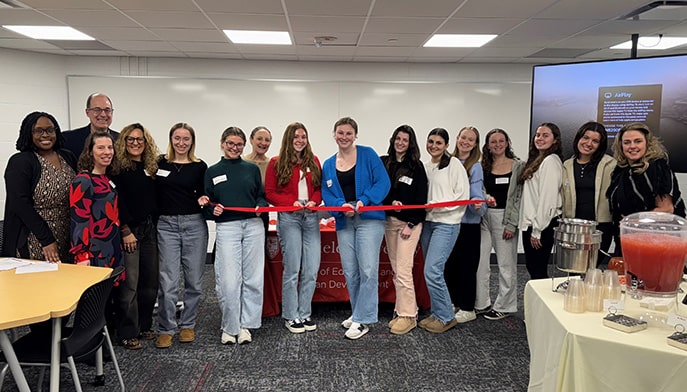This July, Fairfield University’s School of Education and Human Development (SEHD) launched its inaugural Educator Resiliency and Wellness Institute, a two-day professional development experience centered on caring for the whole educator: body, mind, and spirit. Grounded in Fairfield’s Jesuit mission to educate the whole person, the Institute was designed to support K–12 educators across Connecticut.
“Our educators—the backbone of our communities and the architects of childhood—are facing unprecedented burnout. Post-pandemic research shows their exhaustion now surpasses even that of health professionals,” said Evelyn Bilias Lolis M'02, PhD, dean of the School of Education and Human Development. “The educators we hosted joined us from schools across the state and from all sectors of education to take part in a two-day transformative wellness curriculum.”
The first day's programming, themed "Reflecting and Recharging," focused on critical reflection, stress awareness, self-care strategies, and peer connection through networking and year-in-review discussions. The second day shifted toward building sustainable practices for the future, offering sessions on resilience planning, professional sustainability, restorative movement, and therapeutic art.
Among the participants was Amy Taylor, a former second-grade teacher at Sandy Hook Elementary School and current fourth grade at Head O’Meadow School in Newtown, who has spent the past 12 years exploring wellness and resilience practices in the aftermath of the traumatic 2012 Sandy Hook school shooting. Taylor shared that this journey was rooted in her effort to rediscover joy in teaching, a process supported by a variety of programs and workshops she was able to attend. "From guided reflection and stress awareness to accessible self-care strategies, including nutrition, mindfulness, movement, and connection, the sessions offered a meaningful and practical framework for personal and professional renewal," she said.
“Most likely, your efforts will reach beyond the people attending the Institute," noted Taylor. "They’ll talk with their colleagues, their friends, their families. This is what our world needs today.”
The Institute will be offered annually to continue supporting the well-being of educators and fostering long-term professional resilience. “I’m grateful for our incredible campus colleagues who volunteered their time and expertise to help make the Institute so impactful," said Dr. Lolis, "and for our community partners who supported teachers in joining us.”







